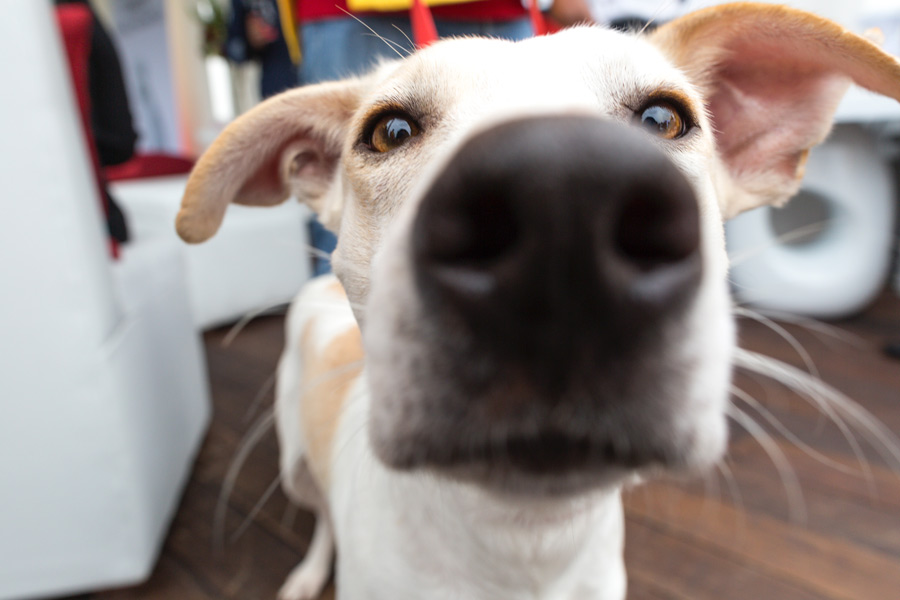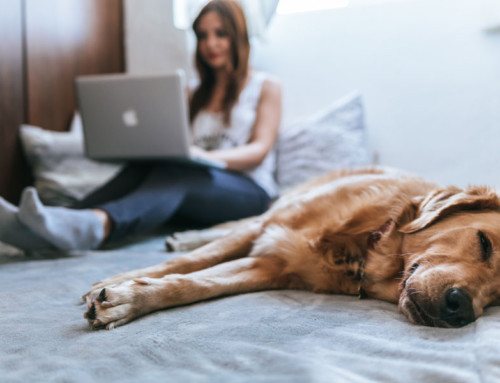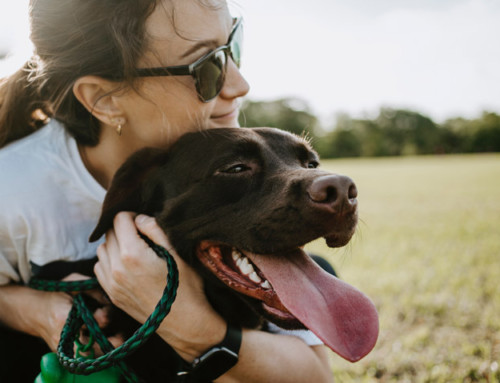What is a Coronavirus/COVID-19?
COVID-19 is the disease caused by the recently identified coronavirus SARS-CoV-2.
Coronaviruses are a large family of viruses which can cause illness in animals or humans. In humans, several coronaviruses are known to cause respiratory infections. The common cold, Severe Acute Respiratory Syndrome (SARS) and the recently identified SARS-CoV-2 are examples of coronaviruses.1
Can COVID-19 infect pets?
Veterinary associations and regulatory authorities have reported cases of cats and dogs that have tested positive for SARS-CoV-2.
To-date SARS-CoV-2 has been reported in 4 cats (Hong Kong (1), Belgium (1), New York (2)), 3 dogs (Hong Kong (2), North Carolina (1))2,3.
Some, but not all of these reported cases displayed clinical symptoms associated with SARS-COV-2 infection including2,3:
- Mild respiratory signs
- Gastrointestinal signs including vomiting and diarrhea
The majority of these pets were reported to be in direct contact with people who had been infected with SARS-CoV-2 (or people who were suspected of being infected with SARS-CoV-2).2,3,4
It is important to remember that these are rare cases and examples of the virus being spread from people to pets, and not pets infecting people. There is still no evidence to show that pets play a role in spreading the virus to other pets or to people.1,3,4
Over 4,000 pets from the United States and South Korea tested for COVID-19 have returned negative results.5 This highlights how rare it is for dogs and cats to have the virus.
Currently there is no conclusive evidence suggesting dogs and cats naturally infected with the virus can transmit the COVID-19 virus to people, as it’s currently spreading through human to human transmission.1,3,4,6
This is an evolving situation and information will be updated as it becomes available from the relevant human health and veterinary bodies.
Can I catch the COVID-19 virus from my pet’s coat?
There is still no indication that pets can infect humans or play any role in the spread of COVID-19 to humans.
The COVID-19 virus can live for a short time on surfaces, meaning if someone infected with the virus sneezes or touches something, for a short period of time that surface can act as a source of infection.7
Smooth (non-porous) surfaces such as door handles and benchtops transmit viruses better than porous materials such as cardboard and pet hair, because porous materials absorb and trap the virus, making it harder to pick it up through simple touch.7 The virus seems to be able to survive on smooth surfaces such as plastic and stainless steel for up to 72 hours, but much shorter periods on porous surfaces such as cardboard (24 hours).7 Additionally, it is unlikely that a sufficient amount of virus would remain on the hair coat long enough to transmit infection.
It is always a good idea to wash your hands for at least 20 seconds with soap and water after contact with your pet. This is a precautionary measure until more information is known, and also helps protect against various other germs, such as E. coli and Salmonella, that can pass between pets and humans.
Should I change the way I interact with my pet due to COVID-19?
If you are not sick with COVID-19, you can interact with your pet normally.
Where possible, cats should be kept indoors to minimize their interactions with other people and pets.6
Keeping dogs on a lead whilst on walks to maintain appropriate social distancing and to avoid them interacting with pets outside your family unit is recommended.6
You should continue to practice good hygiene after feeding, walking and playing with your pet:
- Washing hands before and after interacting with your pet
- Regularly cleaning your pet’s food and water bowls, bedding material, and toys
If you are sick with COVID-19, the Australian Veterinary Association (AVA) recommends8:
- Keeping your pet within the affected household
- Minimising contact with your pet, and avoid any close contact
- Get someone else in the household to care for the pet if possible
- Maintain good hand hygiene before and after handling your pet and their food and water bowls
- Developing a plan for care of your pets in the event of you being hospitalised
Do dogs and cats suffer illness from any coronaviruses?
Feline infectious peritonitis virus (FIP) and canine coronavirus (CCV) are two coronaviruses which have been unfortunately present and causing disease in cat and dog populations for a long time. It is important to note that FIP and CCV are distinctly different and separate to the SARS-CoV-2 virus causing the current disease outbreak with humans. CCV generally causes mild gastroenteritis in dogs, and FIP is a progressive and invariably fatal systemic disease of domestic cats. Both cannot cause illness in people.
Do Petsecure Pet Insurance policies provide cover for COVID-19 or other coronaviruses?
Feline infectious peritonitis (FIP) and canine coronavirus (CCV) are assessed as Illness conditions under Petsecure policies and are generally eligible for cover under Illness subject to the policy terms, and provided the condition is not a pre-existing condition.
References
References:
- World Health Organisation (WHO), Coronavirus disease (COVID-19) Pandemic, accessed on 3 April 2020, available from: https://www.who.int/emergencies/diseases/novel-coronavirus-2019
- Centers for Disease Control and Prevention (CDC), Confirmation of COVID-19 in Two Pet cats in New York, accessed on 24 April 2020, available from: https://www.cdc.gov/media/releases/2020/s0422-covid-19-cats-NYC.html
- University of California, Davis, School of Veterinary Medicine, accessed on 29 April 2020, and available from: https://www.vetmed.ucdavis.edu/news/information-animals-covid-19
- World Organisation for Animal Health (OIE), Questions and Answers on the 2019 coronavirus disease (COVID-19), accessed on 3 April 2020, available from: https://www.oie.int/en/scientific-expertise/specific-information-and-recommendations/questions-and-answers-on-2019novel-coronavirus/
- IDEXX Laboratories, IDEXX SARS-CoV-2 (COVID-19) RealPCR Test, accessed on 8 April 2020, available from: https://www.idexx.com/en/veterinary/reference-laboratories/idexx-sars-cov-2-covid-19-realpcr-test/
- American Veterinary Medical Association (AVMA), COVID-19, accessed on 3 April 2020, available from: https://www.avma.org/resources-tools/animal-health-and-welfare/covid-19
- Neeltje van Doremalen, Trenton Bushmaker, Dylan H. Morris, Myndi G. Holbrook, Amandine Gamble, Brandi N. Williamson, Azaibi Tamin, Jennifer L. Harcourt, Natalie J. Thornburg, Susan I. Gerber, James O. Lloyd-Smith, Emmie de Wit, Vincent J. Munster, 2020, ‘Aerosol and Surface Stability of SARS-CoV-2 as Compared with SARS-CoV-1’, New England Journal of Medicine.
- Australian Veterinary Association (AVA), Coronavirus (COVID-19): AVA updates, accessed on 29 April 2020, available from: https://www.ava.com.au/coronavirus/







Leave A Comment